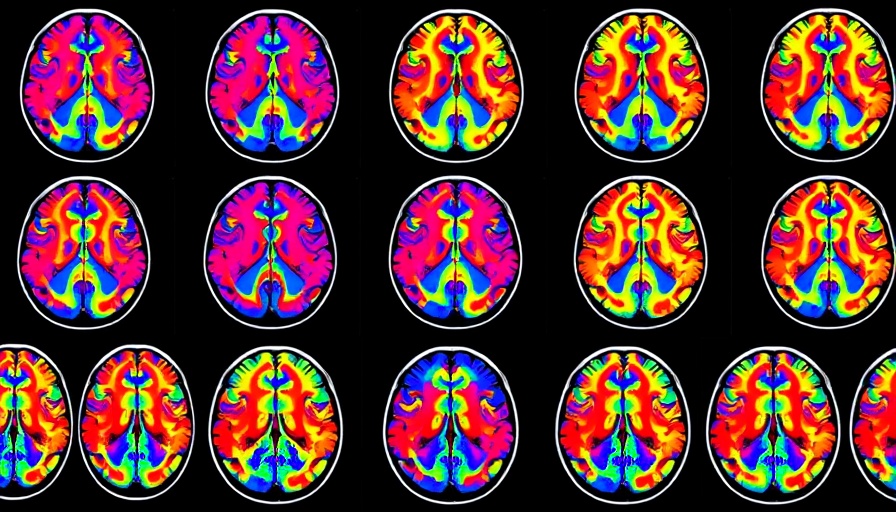
Uncovering the Intricate Connection Between Blood Flow and Brain Health
The human brain is a complex organ, and new research reveals that its health may be influenced by an unexpected factor: blood flow. In a recent study, researchers have established a link between increased blood flow and stiffness in the hippocampus, a crucial area associated with learning and memory. This finding is particularly relevant as the hippocampus is one of the first regions affected by Alzheimer’s disease, a condition that progressively impairs cognitive function and daily life.
Blood Flow and Brain Stiffness: What the Research Reveals
The study, published in the journal Interface Focus, involved advanced imaging techniques like magnetic resonance elastography (MRE) and aMRI to assess how variations in blood flow could affect brain stiffness. Researchers analyzed the brains of young adults aged 22 to 35, focusing on the unique relationship within the hippocampus. Surprisingly, they found that robust blood flow appeared to make this area of the brain stiffer—a phenomenon not observed in other brain regions.
Pathway to Early Alzheimer’s Detection
These discoveries offer a beacon of hope in the field of Alzheimer’s research. Currently, there are few options for early diagnosis of this debilitating disease, which affects millions worldwide. The hypothesis proposed by the researchers suggests that reduced blood flow could lead to a softening effect in the hippocampus, potentially highlighting individuals at risk of developing Alzheimer’s before significant memory loss occurs.
Connecting the Dots: Future Implications
Understanding the interplay between blood flow and brain stiffness opens up a wide array of possibilities. For example, future research could explore how enhancing blood flow might improve the health of the hippocampus. This could pave the way for new approaches in preventive strategies and therapies aimed at combating Alzheimer’s disease and related conditions.
Why This Matters to Your Health and Wellness
Maintaining optimal brain health is increasingly crucial as life expectancies rise. Incorporating lifestyle changes that promote healthy blood flow, such as regular exercise, proper nutrition, and stress management techniques, may prove vital in supporting brain function. Communities can initiate health and wellness programs that focus on these aspects, fostering environments that prioritize cognitive health as part of overall well-being.
Common Myths About Alzheimer’s Disease and Brain Health
- **Only older adults are at risk**: While age is a significant factor, early signs can begin much earlier.
- **Cognitive decline is inevitable**: Proactive measures can help stave off dementia-related conditions.
- **There’s no way to prevent Alzheimer’s**: Lifestyle changes and interventions can improve brain health and possibly delay onset.
Creating a Community Focused on Wellness
As the understanding of brain health evolves, so should our approach to community health and wellness initiatives. Communities must collaborate with health professionals to disseminate knowledge and tools that empower individuals to take charge of their brain health. This could involve health workshops, wellness events, and access to resources focused on promoting better brain functioning.
Moving Ahead: Actionable Insights and Next Steps
Developing a wellness-oriented mindset requires a shift in focus towards brain health as a priority. Individuals can start by:
- Incorporating physical activity: Aim for regular aerobic exercise to enhance blood circulation.
- Pursuing a nutrient-rich diet: Foods rich in omega-3 fatty acids, antioxidants, and whole grains are known to support cognitive function.
- Establishing a routine: Prioritize good sleep hygiene, stress management practices, and activities that challenge the brain.
By understanding the potential impact of blood flow on brain stiffness and overall health, individuals can proactively engage in health and wellness practices that may protect against cognitive decline.
Take Control of Your Brain Health Today
As we unravel the connection between blood flow and brain stiffness, it’s vital to act on these insights. Engage in community health and wellness events to learn more about how to support brain health. Don’t wait for symptoms to appear—empower yourself with knowledge and take proactive steps towards a healthier brain today.
 Add Row
Add Row  Add
Add 




 Add Row
Add Row  Add
Add 


Write A Comment